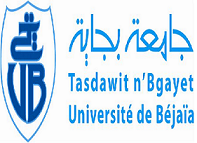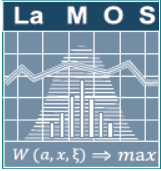 |
Ministry of Higher Education and Scientific Research – Algeria A. Mira University of Bejaia, Faculty of Exact Science LaMOS Research Unit, LIMED Laboratory |
 |
 |
CARI’2024Bejaia, 23-26 November, 2024 |
Preface
Thirty-two years ago, mathematicians, computer scientists, specialists in various digital disciplines, and business managers came together in Yaoundé, Cameroon (1992) to ≪ build ≫ the 1st CARI – African Conference on Research in Computer Science and Applied Mathematics. This event emerged from international cooperation
between African, European, and international research institutes. Organized every two years since its first edition in Yaoundé in 1992, the CARI is more than just a scientific meeting, it is a dynamic environment of collaboration that brings together researchers and decision-makers in the fields of computer science and applied mathematics.
Since then, CARI has traveled across Africa: Cameroon (1992), Burkina Faso (1994), Gabon (1996), Senegal (1998), Madagascar (2000), Cameroon (2002), Tunisia (2004), Morocco (2008), Ivory Coast (2010), Algeria (DGRSDT, CERIST, ESI, USTHB, CDTA, 2012), Senegal (2014), Tunisia (2016), South Africa (2018),
Senegal (2020), and Cameroon-Tunisia (2022).
The 17th CARI’2024 Conference is taking place in Béjaia (Algeria). It is organized under the auspices of ASDS (African Society in Digital Sciences) in partner- ship with several specialized institutions in Algeria (DGRSDT, ATRST, University of Béjaia, SMA – Algerian Mathematical Society, A2T2 – Algerian Society for Technology Transfer, EPB (Port Enterprise of Béjaia) and internationally INRIA (National Institute for Research in Computer Science and Automation), IRD (Institute of Research for Development), CIRAD (Center for International Cooperation in Agronomic Research for Development), #DigitAg, . . .
The scientific and international reputation of the local organizers (LaMOS Re- search Unit (http://www.lamos.org) and the LIMED Laboratory), was pivotal in selecting Béjaia as the host for this 17th edition. We hope to meet the expectations and challenges of this important event. Indeed, the committees received 210 communi- cation proposals from 28 different countries (including 16 African countries). These submissions were reviewed by a TPC-Technical Program Committee (chaired by Prof. K. Barkaoui, Beït el Hikma Tunis and CNAM Paris), which mobilized 146 reviewers.
The scientific program, which reflects the richness and diversity of research carried out on the African continent in particular, focuses on work likely to contribute to scientific and technological development, environmental awareness and natural re- source management.
The first day of the event (Saturday, November 23) will be dedicated to a work- shop [on international cooperation, led by S. Arnaud, R. M. Ahouandjinou (IFRI, UAC, Benin), Hélène Kirchner (INRIA, France), and César Viho (IRISA, France), and to a specialized workshop, “DAAfrica’2024 – Data Science for Agriculture in Africa”.
coordinated by Paulin Melatagia (University of Yaoundé I) and Mathieu Roche (CIRAD, France), with 40 registered participants. The final day (Wednesday, November 26, 2024) will feature the General Assembly of the ASDS (African Society in Digital Sciences). Additionally, a rich social and cultural program will accompany the scientific event.
The four plenary lectures will be delivered by leading experts (G. Yero – Uni- versity of Cadiz, F. Toumani – CNRS Clermont-Ferrand, H. Sahraoui – University of Montreal), including Professor Salissou Moutari (Queen’s University Belfast, United Kingdom), a graduate of our Operational Research Department at the University of Béjaia (Engineer, class of 2001). This is an opportunity to highlight our institution’s policy toward Africa, initially directed toward the Maghreb in the early 1980s and subsequently toward Sub-Saharan Africa from the 1990s. We take this opportunity to honor the memory of Professor Kwansi Adam (Kumasi University, Ghana), with whom we collaborated as early as 1990 on the SEAM African Conferences (Structural Engineering Analysis and Modeling). The training initiatives of our university even extended to supervising engineering theses on local topics (such as the performance evaluation of the electrical network of Niamey city, for the Nigelec company).
The CARI’2024 Committees extend their gratitude to all those who contributed, directly or indirectly, to ensuring that this 17th edition reflect the scientific and technological advancements of recent years.
